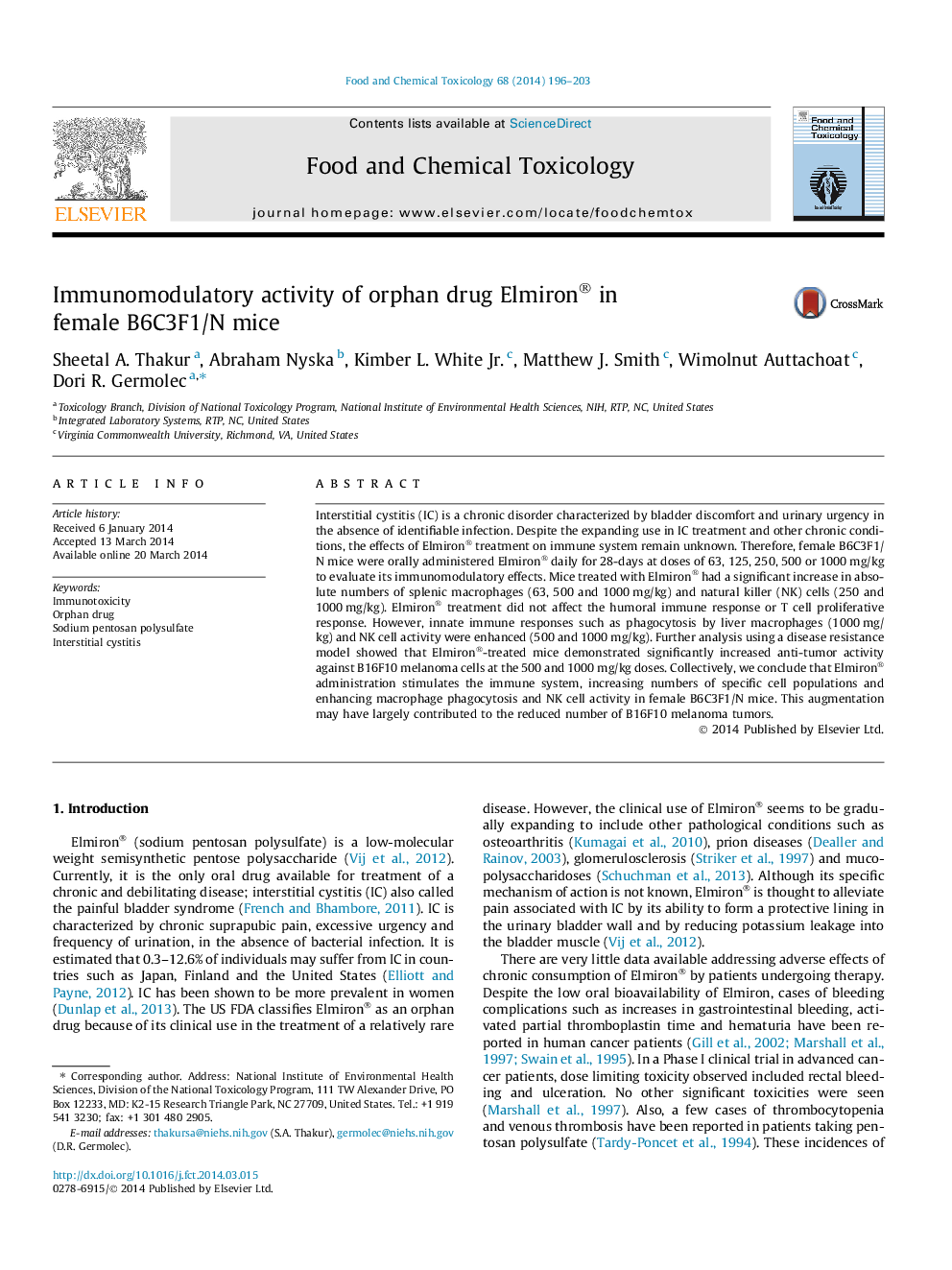| Article ID | Journal | Published Year | Pages | File Type |
|---|---|---|---|---|
| 5850516 | Food and Chemical Toxicology | 2014 | 8 Pages |
Abstract
Interstitial cystitis (IC) is a chronic disorder characterized by bladder discomfort and urinary urgency in the absence of identifiable infection. Despite the expanding use in IC treatment and other chronic conditions, the effects of Elmiron® treatment on immune system remain unknown. Therefore, female B6C3F1/N mice were orally administered Elmiron® daily for 28-days at doses of 63, 125, 250, 500 or 1000Â mg/kg to evaluate its immunomodulatory effects. Mice treated with Elmiron® had a significant increase in absolute numbers of splenic macrophages (63, 500 and 1000Â mg/kg) and natural killer (NK) cells (250 and 1000Â mg/kg). Elmiron® treatment did not affect the humoral immune response or T cell proliferative response. However, innate immune responses such as phagocytosis by liver macrophages (1000Â mg/kg) and NK cell activity were enhanced (500 and 1000Â mg/kg). Further analysis using a disease resistance model showed that Elmiron®-treated mice demonstrated significantly increased anti-tumor activity against B16F10 melanoma cells at the 500 and 1000Â mg/kg doses. Collectively, we conclude that Elmiron® administration stimulates the immune system, increasing numbers of specific cell populations and enhancing macrophage phagocytosis and NK cell activity in female B6C3F1/N mice. This augmentation may have largely contributed to the reduced number of B16F10 melanoma tumors.
Related Topics
Life Sciences
Agricultural and Biological Sciences
Food Science
Authors
Sheetal A. Thakur, Abraham Nyska, Kimber L. Jr., Matthew J. Smith, Wimolnut Auttachoat, Dori R. Germolec,
